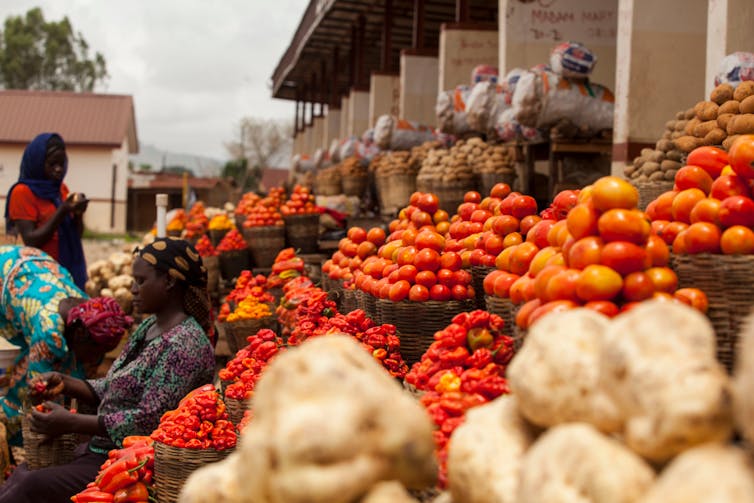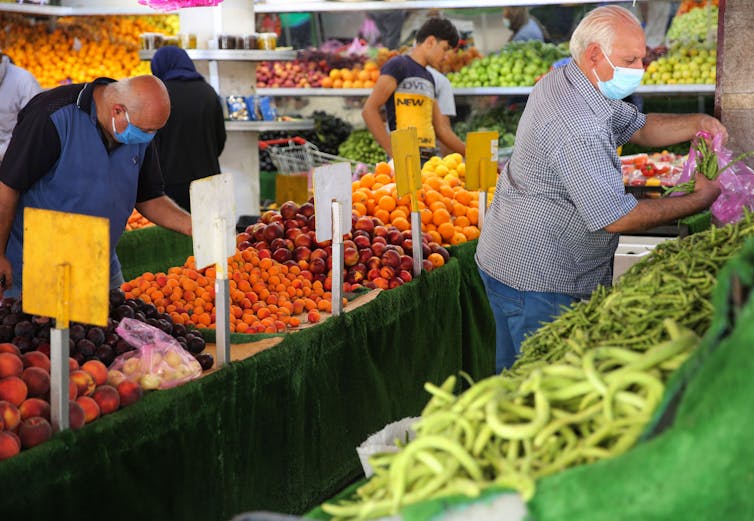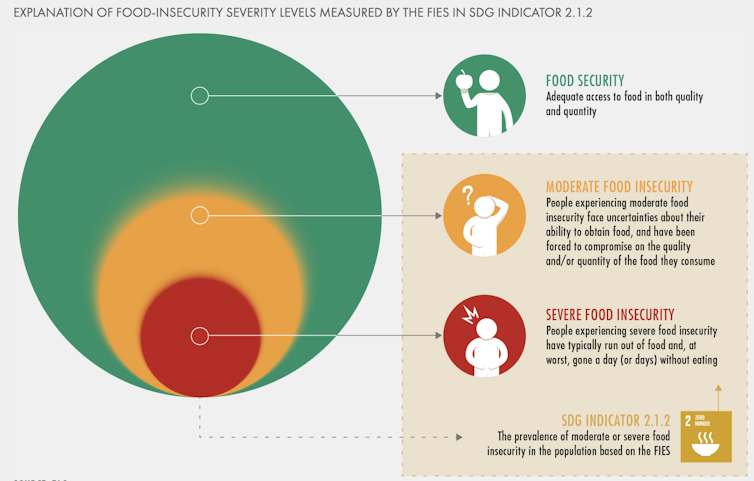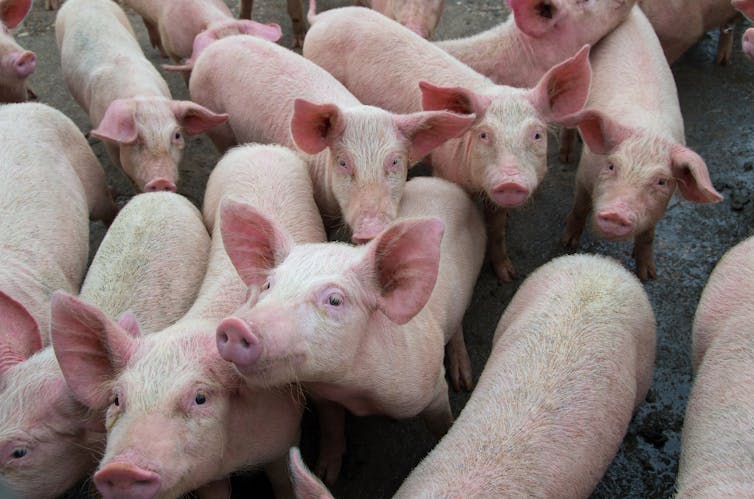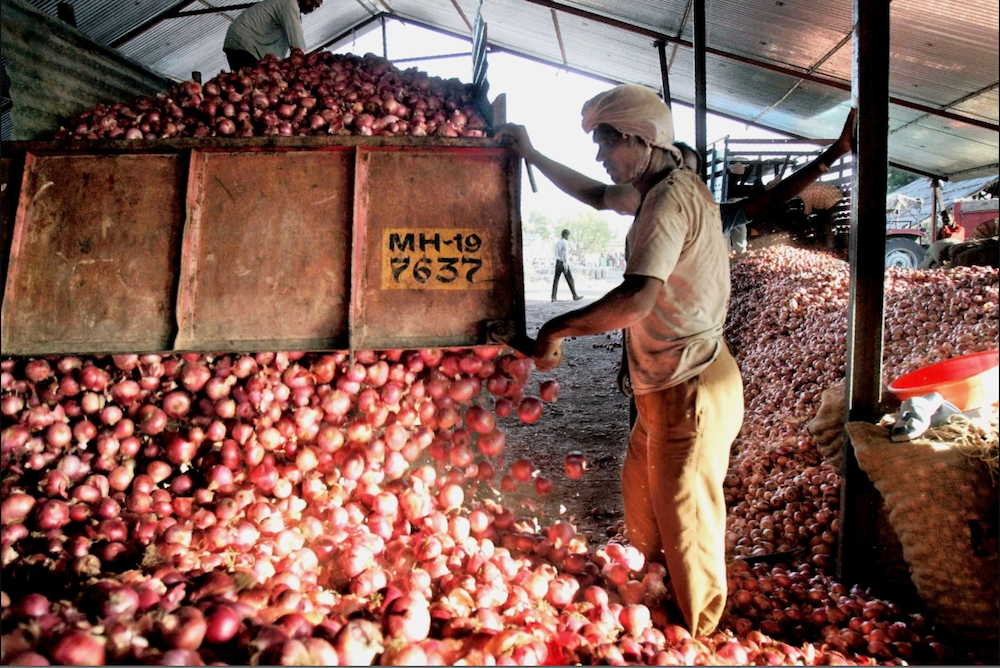The above quote is in rage these days, especially among stock market investors though Lenin wouldn’t be very happy about it.
Many smart folks are making moolah like they did during the 2008 financial crisis so much so that they could happily retire if their greed permits.
But the Covid-19 pandemic is a far bigger, wider and deeper crisis than the 2008 crash in financial markets. And larger the calamity, grander the opportunity to reap benefits.
Nonetheless, the Lenin quote is not just applicable to investors. It is representative of drastic changes taking place all over the world in response to the havoc wreaked by Covid-19. It’s true for India as well.
Speaking purely on the basis of potential and hope, I would dare say that the regulatory reform needle for Indian agriculture moved more yesterday (15 May) than it did during the last seven decades.
Yesterday was a day where decades happened.
Union Finance Minister Nirmala Sitaraman announced three radical reforms: contract farming, amendments to Essential Commodities Act of 1955 and a central law facilitating farmers to sell their produce anywhere in the country rather than to licensed buyers at designated mandis.
All three of these reforms are critical. If the government had left out even one of these from its package, the impact would’ve been much less as I will explain later. But of all the three, contract farming is Modi government’s biggest gift to farmers.
It has the potential to transform Indian agriculture in ways that are currently not even fathomable.
First, the biggest problem with Indian agriculture is that of scale (or lack thereof).Small and marginal holdings (less than two hectares) constitute 86.21 per cent of the total land holdings in the country. This not only doesn’t allow farmers to have sufficient or sustainable income but is also very damaging to overall productivity because smaller the farmer, lesser the capital, will to experiment with crops, seeds, water-use, fertilizer, etc.
And thus outdated policies continue. Experts after experts have been pointing out the need for consolidation of farms if Indian agriculture has to have a shot at achieving decent levels of growth.
But no policy of the government has helped. Here, contract farming can prove to be a boon. If big businesses make major moves on this front, the possibilities are immense.
A single firm can contract with tens of thousands of farmers and consolidate their farms in one go. That solves India’s biggest policy challenge.
Second big challenge for Indian agriculture is low productivity.Contract farming can prove revolutionary here. Most Indian farmers are small and they don’t have the know-how or resources to innovate in any area of production. Policy pundits have been complaining about the lack of private sector investment in agriculture sector for decades now.
Now, contract farming paves the way for this. Businesses have specific requirements regarding the quantity and quality of farm produce they need for making their end products.
So, they will have skin in the game to invest in Research and Development of each aspect of production from seeds to harvest.
Companies which are engaged in contract farming in India at present in some states for select crops have been helping farmers in procuring better seed qualities and also training them in better methods of farming, which can improve yields.
Third major issue has been our pathetic record in post-harvest value add.Farm policy experts have been exhorting the government to invest in cold storage chains, warehouses, marketing reforms, food processing and what not. But government after government has failed at that.Even if the government succeeded, it wouldn’t be able to run them efficiently and competently as its record of managing its own godowns shows.
This is where contract farming comes into the picture. Big businesses will now have an incentive to invest in agriculture infrastructure for storage and food processing (maybe in partnership with other Agro-based industries).
Backward and forward market linkages can be easily created. This will give a big boost to agriculture as an industry and create many jobs as well in agri-related activities.
Fourth, contract farming is effectively the biggest insurance scheme for farmers. As the sale of their produce is guaranteed at a pre-determined price, they don’t have to fret about crash in prices in harvest season. It ends unpredictability in their incomes to a great extent.
Companies currently involved in contract farming in India not only provide farmers with the inputs like seeds and fertilisers and technical know-how but have also been providing loans to them.
Once this system becomes widespread, farmers will be freed from the clutches of moneylenders and move into a transparent system of contracts.
Contract farming will do more to stop farmer suicides than any government loan waiver did in the past seven decades.
Fifth problem with Indian agriculture is lack of diversification in crops. There is too much focus on food crops like wheat, paddy, etc. Contract farming can solve that as well.
As businesses contract with farmers, they can dictate their decisions on what to grow based on the demand of the said produce in the market here in India as well as abroad.
Currently, the decisions of farmers are dictated by government policies on Minimum Support Prices (MSP), which are oriented more towards food crops.
No wonder, there is little diversification because the selling of produce (wheat, paddy, etc) is guaranteed for farmers at attractive prices.
Now, what contract farming does is that it also guarantees farmers a fixed price and guaranteed buy.
So, if someone asks them, they can grow any other non-food crops as well, as long as it gets them same or higher price.
Given the market for non-food crops and the prices these fetch, it wouldn’t be difficult to make them switch.
Last, but not least, the biggest problem with Indian agriculture is that there are too many people involved in it.
Half of them can get out of it tomorrow and no one would notice. There won’t be any change in productivity.
This issue of disguised unemployment is big and contract farming can solve it to a great extent.
Once big corporations control vast swathes of agriculture production by pooling in lands of thousands of farmers where technology replaces most labour work, a lot of people can move out of this unproductive profession.
Many will get jobs in agriculture-related activities that contract farming will help create while others will have to be absorbed somewhere else.
There are many other positive changes contract-farming will usher in. We can’t fathom all of those.
And that says a lot about the potential of this Big Bang reform.
In the beginning I mentioned that the reform package wouldn’t be complete without other two reforms announced by the government — breaking the monopoly of licensee cartel in mandis which will facilitate barriers-free trade across the country and amendments to the Essential Commodities Act (ECA).
ECA is a legislation from an era of shortages of the Nehruvian India where the government needed to crack down on hoarders of essential commodities.
It isn’t compatible with Modi’s India of contract farming, where large volumes of commodities will need to be be stored and moved seamlessly across state borders.
As far as breaking of APMC monopoly is concerned, this may not be consequential to an individual farmer but it is critical to the success of contract farming, for, the contractor will need the freedom to transport and sell it to any buyer not just in the country but even outside.
Why did Modi’s ambitious idea of e-mandis not take off?Because, for most small farmers, it doesn’t make sense to sell it to a person or a place beyond their district boundaries.
The transportation cost would be too overwhelming even if they are getting an attractive price.
So, a farmer in Rohtak would rather sell his produce in local mandi at lower price than take the trouble of going to Delhi and selling it at a higher price.
But businesses won’t have that problem. They can easily transport huge volumes from one state to another, or to ports for transportation to foreign countries.
Contract farming is the real deal.
If ever there existed a Rama-baan to solve the woes of Indian agriculture and farmers, this is it.
Only one thing can stop this idea from realising its full potential: the government. It should stay as far as possible from the contractual agreements between farmers and businesses.
It shouldn’t give into its socialist impulses and set a minimum floor price for crops in contracts. This will neutralise the whole reform.
The government should restrain Itself from intervening on the side of farmers when they break their contract (There have been cases where farmers sold their produce in the market instead of selling it to the business they had signed contracts with because they were getting a higher price in the market.).
Such breaches of contracts should be left for the courts to decide. The government must focus on strengthening the justice system. India fares terribly on implementing contracts fairly.
The government has its task cut out for itself: stay away, don’t give into populism, be fair, don’t become an active participant in the process and only remain a facilitator.




